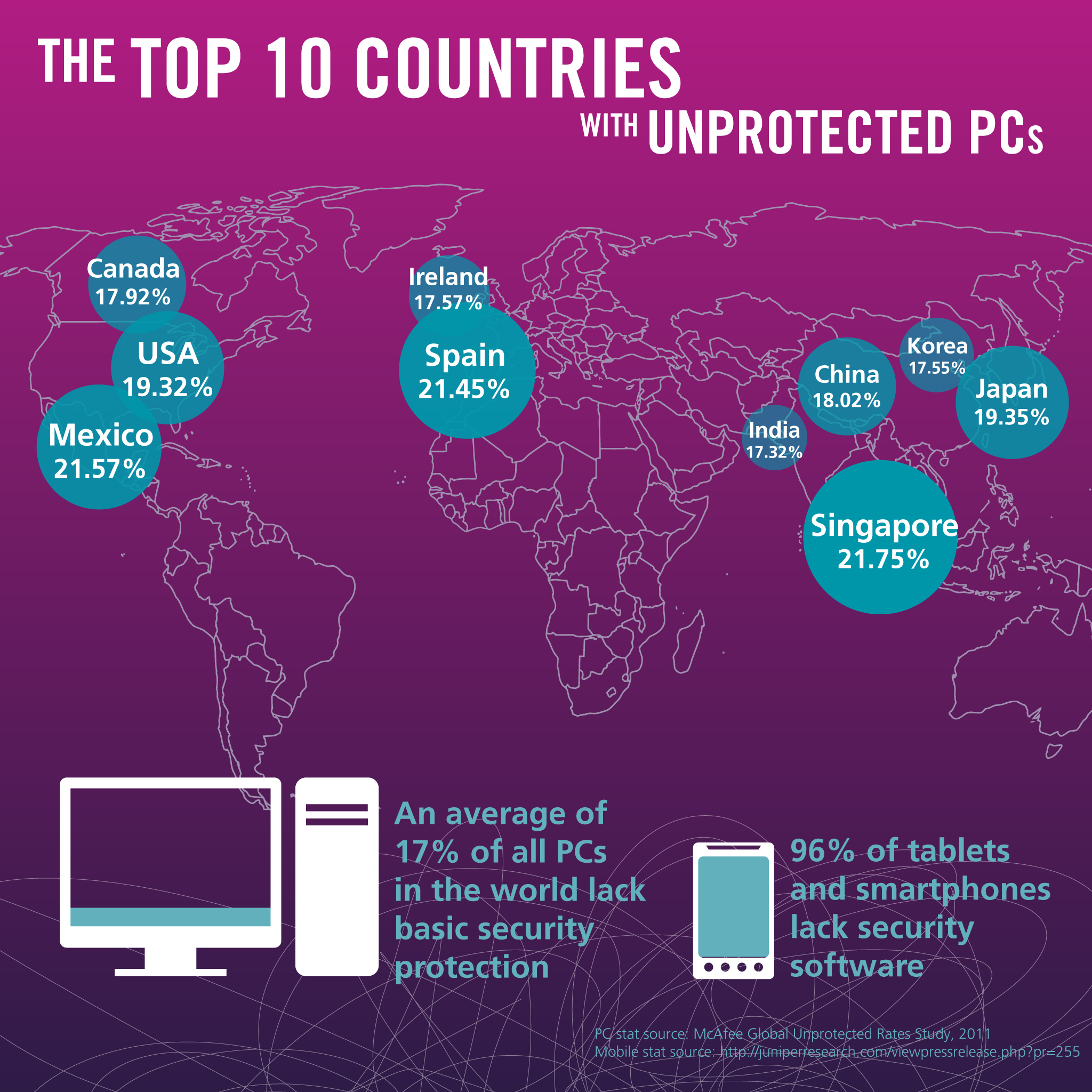Some eye-opening stats out today from McAfee, the Intel-owned IT security company: a study of 28 million computers in 24 countries has found that 17 percent of all PCs do not have any form of security at all on them against viruses, worms, spyware and other Internet malware — a transgression that McAfee compares to “walking around naked on the Internet.”
But McAfee notes that while the average worldwide figure for unsecured PCs works out to one out of every six users, some countries are taking their security more seriously than others…
In Finland, the most protected country, only 9.7 percent of PCs had no security software installed at all. But in Singapore, the most unprotected country, 21.75 percent of all PCs do not have any anti-malware products or other security coverage.
The U.S. is not the worst offender of all, but it isn’t that impressive, either: it’s in the top five least-protected countries, with 19.32 percent of all computers lacking anti-malware software.
“The freedom to browse the internet comes with the added risk of unwanted exposure, and cybercriminals are preying on unsuspecting victims,” Todd Gebhart, co-president of McAfee, said in a statement. “With 17 percent of the world walking around naked on the internet, it is critical that consumers update their virus protection before it’s too late.”
Having expired or disabled software is nearly as bad as having nothing at all — but at least the number of PCs falling into this category are smaller. For example in the U.S., 7.07 percent of the country had disabled security software installed on their computers, McAfee said. Singapore again performed worst of all here: some 11.75 percent of computers in the country have installed, disabled, security protection
McAfee points out some of the very basic-yet-critical issues with people not remaining vigilant about their security software: identity theft, data loss and the fact that your own computer can become an unwilling participant in the ongoing spread of the malware in question.
The lack of security also seems to fly in the face of people’s own knowledge of how fleeting their data can be: globally consumers say that 27 percent of digital files are “impossible to restore” if they were lost and not backed up correctly: the average value of those lost files was just over $10,000.
The security industry appears to be getting more creative in how it speaks to unprotected PC owners. McAfee recently joined up with other security companies to offer their services via Facebook, initally as a trial and later as paid service. It will be interesting to see whether new route to pushing security will lead to a measurable rise in people protecting their computers.
Update. There is another point of view, too: it may not be lazy behavior or lack of knowledge, but skepticism that protection actually works, which keeps some people away from using anti-virus software.
As reader Rosen Sharma pointed out, with a hat tip to the “naked” analogy, “Anti-virus detection rates are bad; having AV is like wearing see through clothes.” (He should know; he is currently CEO of PC app player BlueStacks, but he used to be an SVP and CTO at McAfee.)

